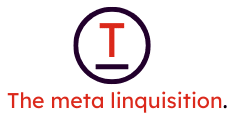The advent of technology has permeated virtually every sphere of our lives, with the real estate market being no exception. The rapid evolution in home automation, often dubbed as “smart homes”, is reshaping the property landscape, presenting a striking reflection of the interplay between luxury and technology. With the proliferation of smart devices and systems, today’s homes are evolving into digital fortresses, offering unprecedented levels of security and control. As these innovations become increasingly mainstream, they are significantly influencing buyer preferences, selling features, and market dynamics. In this article, we’ll cruise through the realm of smart homes, highlighting their rise and impact on the real estate market.
The Emergence of Smart Homes
Smart homes, as the term suggests, are living spaces equipped with advanced automation systems that offer homeowners both convenience and control. Often, these systems are interconnected, allowing homeowners to control various features of their homes seamlessly from a single device. From lighting to heating and from security to entertainment, smart home technology is revolutionizing how we live and interact with our surroundings.
Have you seen this : The impact of local economic trends on real estate values
Over the past decade, the adoption of smart homes has accelerated, driven by technological advancements, growing consumer expectations, and the increasing need for energy efficiency. The proliferation of internet-connected devices and the development of smart home ecosystems have made home automation more accessible and affordable. The rise in consumer awareness about the benefits of smart products, such as energy savings, security enhancements, and convenience, has further fueled the growth of the smart home market.
The Intersection of Smart Homes and Real Estate
The rise of smart homes is reshaping the real estate market. As smart emerges as a new keyword in property listings, real estate developers and sellers are increasingly investing in smart technologies to deliver cutting-edge homes that meet the needs of tech-savvy buyers.
Additional reading : What are the best strategies for real estate lead generation?
From a property buyer’s perspective, smart features are becoming a key deciding factor. With the advent of smart technology, buyers are no longer just interested in the location, design, or size of the property. They are looking for homes that offer advanced security systems, energy-efficient devices, customizable lighting, and temperature control, thus redefining luxury in real estate.
For sellers, incorporating smart home features into their properties provides a competitive edge in the market. A property equipped with smart technologies not only commands a higher price but also tends to sell faster, given the growing demand for such homes.
Impact on Security and Control in Homes
One of the most significant perceived benefits of smart homes is the enhanced security they offer. The integration of advanced security devices and systems is transforming properties into secure digital fortresses. Smart home security goes beyond traditional alarm systems, offering features like video surveillance, motion detection, and remote control over locks and alarms.
Notably, smart home technology gives homeowners complete control over their property. Smart devices enable real-time monitoring and remote control of various home features, providing peace of mind for homeowners, especially those who travel frequently. From controlling lighting and temperature to monitoring security cameras, smart homes offer homeowners the ability to manage their homes from anywhere, at any time.
Smart Home Technology as a Luxury Selling Point
In the realm of real estate, luxury is continually evolving. Today, luxury has transcended beyond spacious properties and high-end finishes to include advanced, tech-driven features. The growing demand for smart homes is a testament to this shift.
Smart home technology is emerging as a significant selling point for high-end properties. From voice-controlled lighting and automated window shades to intelligent heating systems and advanced security measures, these features are becoming increasingly sought-after by buyers. Smart homes are not just about convenience or security; they are a lifestyle statement, representing a blend of functionality, innovation, and luxury.
While the luxury real estate market is leading the adoption of smart home technology, it’s not just confined to high-end properties. The appeal of smart homes is broadening, with more and more buyers seeking smart features in their properties. This trend is pushing developers and sellers across the board to invest in smart home technology, marking a significant shift in the real estate market.
The rise of smart homes in the real estate market is an exciting development, reflecting how technology is shaping our living spaces. As smart home technology continues to evolve and become more accessible, it will undoubtedly continue to redefine the real estate market, influencing buyer preferences, selling features, and market dynamics.
Proliferation of Smart Technology in the United States
The United States has been at the forefront of smart home technology adoption, with places like Los Angeles seeing a boom in smart homes. This trend has fundamentally altered the real estate landscape in the country, with smart technology becoming a critical consideration in property transactions.
The growing demand for smart homes in the U.S. can be attributed to several factors. Primarily, the rise of a tech-savvy generation that values convenience, efficiency, and security has significantly influenced this trend. There’s also a growing awareness of the potential energy savings that smart technology can offer, with devices like smart thermostats and smart lighting providing more efficient ways to manage energy consumption.
Furthermore, the increasing significance of home security in the U.S. has led to a surge in demand for smart security devices, such as smart locks and surveillance systems. These devices provide enhanced security features compared to traditional systems, such as remote access, real-time alerts, and the ability to control and monitor the system from anywhere, offering homeowners peace of mind.
The robust growth of the smart market in the U.S. has compelled real estate developers and sellers to incorporate smart features into their properties, further fueling the rise of smart homes. As this trend continues to gain momentum, the intersection of smart homes and real estate is expected to become even more prominent in the United States.
The Future of Smart Homes in the Real Estate Industry
Looking towards the future, the proliferation of smart homes in the real estate industry is set to continue. As technology continues to evolve and become more integrated into our everyday lives, the demand for smart homes isn’t just a passing trend; it’s a fundamental shift in what buyers expect from their homes.
Smart home technology will continue to redefine what constitutes luxury real estate. As more advanced and innovative smart products hit the market, the definition of luxury will continue to evolve. From commercial real estate to residential properties, smart features will become a standard expectation, not just an added luxury.
For the real estate industry, this means a greater emphasis on understanding and integrating smart technology. Real estate professionals will need to stay abreast of the latest developments in smart home technology, understanding how they can add value to properties and meet the growing demands of buyers. Real estate developers and sellers that can effectively incorporate smart features into their properties will have a competitive edge in an increasingly tech-driven market.
The rise of smart homes represents an exciting new chapter in the real estate industry. With technology playing an increasingly important role in our day-to-day lives, the transition towards smart homes seems inevitable. As we cruise into this new era, the promise of a home that offers more control, convenience, and security is set to further revolutionize the real estate industry. The future of real estate lies in smart homes.











